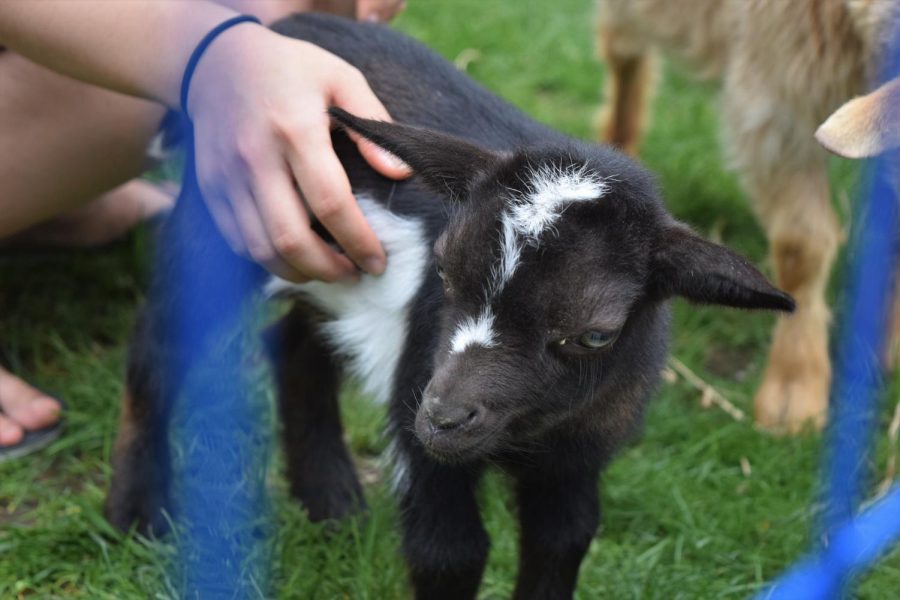In the department of veterinary and animal science at the University of Massachusetts, students are getting hands-on experience in caring for animals and developing daily management skills in the Boer goat management class.
In the fall, students in the class are each assigned a doe to care for and are later given the choice to continue with the class into the spring semester. Most students take advantage of the opportunity – their doe could give birth between January and February and students would take on the role of caring for their baby goat as well.
“There is a lot of anticipation because by then. [The students have] been in charge of picking out a buck and they take care of their assigned does throughout the entire pregnancy,” Meghan Gennings, a departmental assistant in the Center for Agriculture, said. Gennings is a co-instructor with Susan Marston for the class.
According to Gennings, students develop skills in caring for goats and how to breed, vaccinate and correctly handle them. Students said the course is a real-life experience in livestock care.
Riley Burke, a sophomore animal science major, said the course provided her with skills which will benefit her in future classes and beyond.
“If you’re looking to be a veterinarian, this is a really cool experience since it’s very hands-on as we learn how to care for and handle the animals while learning a lot about livestock in general,” Burke said.
Alice Newth, the livestock barn manager, provided the history of the course from its start as a student-run club. In 1999, students convinced the head of the department of veterinary and animal sciences to get eight cross-bred does. From there, with the help of faculty, this club eventually ended up becoming the two-credit elective it is today.
At the end of the spring semester, most of the goats are sold to other breeders or producers. Gennings explained that with this aspect incorporated in the course, “[students] not only learn about the animal husbandry, like the feeding and hoof trimming, but they [learn] about the marketing of animals.”
The teaching assistants for the class have a large role in the marketing of animals and the searching of genetics for new animals. As a result, they gain industry experience while making their own connections outside of UMass in the goat industry. “Taking the course for both semesters allows the students to get a full picture of the entire management practices needed for taking care of goats,” Bob Skalbite, the farm manager, said.
Burke said that having your own doe to take care of makes the course more fun and interactive. The students even become part of the naming process for the baby goats.
“The goats are the cutest and they have the most personality out of all of the animals,” Burke said. “They are always running around, want to be with you and just love people.”
Danielle Tabatnek can be reached at [email protected].



















